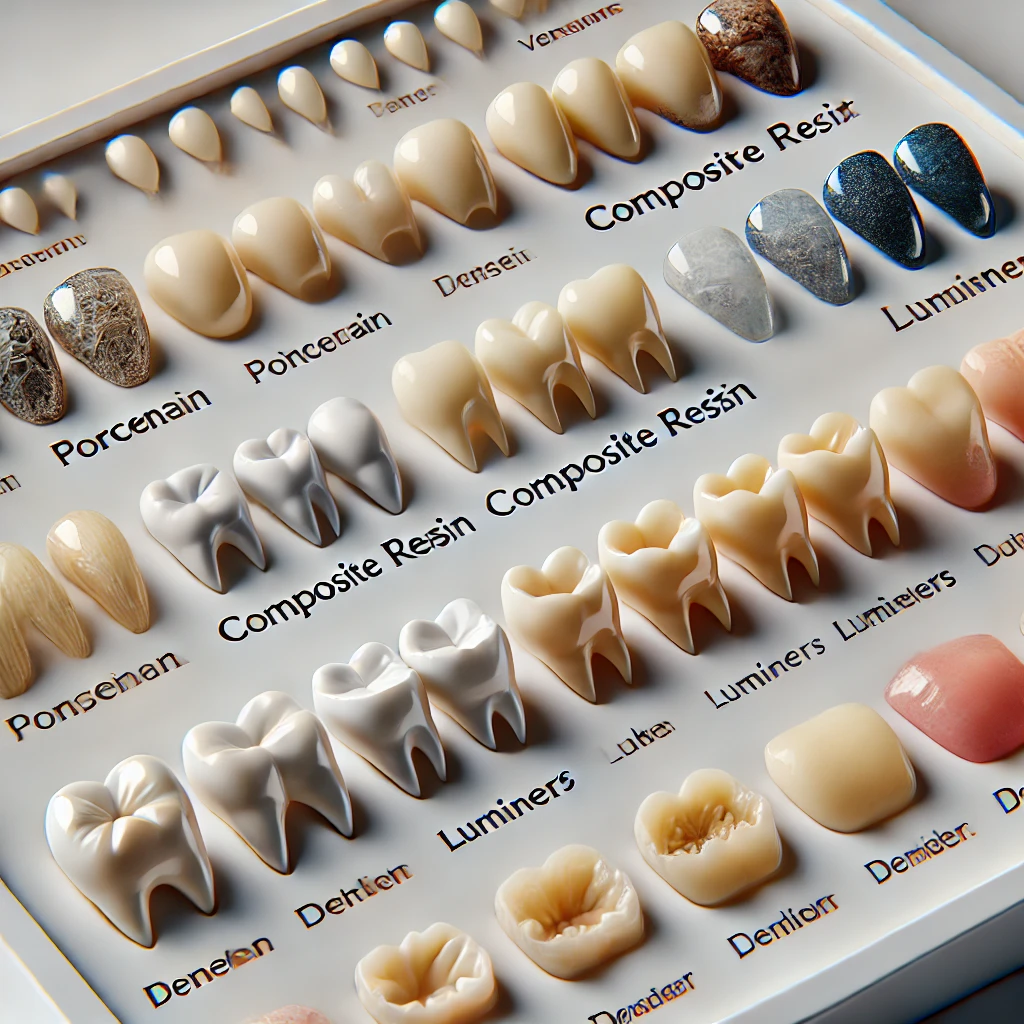Are you considering dental veneers to enhance your smile? These cosmetic solutions are growing in popularity for their ability to transform teeth. However, the cost can be a significant factor, and understanding the veneers cost with insurance is crucial. In this article, we’ll explore everything you need to know about the expenses, insurance coverage, and factors that influence the cost of veneers.
Veneers Overview
Veneers may enhance your smile with options like porcelain or resin veneers. The veneers cost with insurance varies depending on your insurance provider and dental care plan. Resin veneers may be more affordable and still provide a natural teeth appearance. A smile makeover may involve multiple dental treatments, and your dentist may recommend the best option for your needs.
What Are Veneers?

Veneers are thin, custom-made shells designed to cover the front surface of teeth. They improve appearance by correcting issues like discoloration, chips, and gaps. These shells are bonded to the teeth, offering a durable and natural-looking finish.
Types of Veneers Available
- Porcelain Veneers: Known for their durability and natural look, porcelain veneers are a top choice for many. They’re more expensive but last longer.
- Composite Veneers: Made from resin material, these are a more affordable alternative but have a shorter lifespan compared to porcelain.
- Lumineers: Ultra-thin veneers that require minimal preparation. They’re a less invasive option but may not be suitable for everyone.
Each type has a distinct impact on the veneers cost with insurance, so choosing the right one is essential.
Cost of Veneers
The cost of veneers depends on the type, such as porcelain or composite resin veneers, and whether your dental insurance provider covers them. Veneers cost with insurance varies by plan and may cover part of the treatment if deemed necessary. The cost estimate for a single veneer or full set of veneers depends on the number of veneers and the cosmetic dental procedure. Porcelain veneers last longer but have a higher cost, while composite veneers offer a lower cost alternative.
Average Cost of Dental Veneers
On average, dental veneers cost between $800 and $2,500 per tooth. The price varies depending on the material and the dentist’s expertise. Veneers cost with insurance may cover part of the treatment, depending on your plan.
How Much Do Porcelain Veneers Cost?

Veneers Cost With and Without Insurance
Without insurance, the cost of veneers can be overwhelming. The veneers cost with insurance largely depends on whether your insurance classifies the procedure as cosmetic or medically necessary. In most cases, insurance doesn’t cover cosmetic procedures, leaving patients to pay out of pocket.
Factors Affecting the Cost of Veneers
Material Used
The type of material significantly impacts the cost. Porcelain veneers are more expensive but last longer and look more natural. Composite veneers are cheaper but require frequent replacements.
Dentist’s Expertise
Highly skilled dentists charge more for their services. Their experience ensures better results, which can be worth the investment.
Location of the Clinic
Dental clinics in urban areas generally charge more due to higher operational costs. The clinic’s location can influence the veneers cost with insurance or without it.
Insurance and Veneers
The cost of veneers with insurance varies based on the provider and procedure. Many plans don’t cover cosmetic treatments, so the cost of veneers without insurance can be high. Porcelain veneers last longer than composite veneers, which do not last as long. Insurance may cover a portion of the cost if deemed necessary, but insurance plans will not cover all cosmetic procedures. Veneers are often considered a long-term investment for improving your smile.
Does Dental Insurance Cover Veneers?
Most dental insurance policies classify veneers as a cosmetic procedure and don’t provide coverage. However, there are exceptions where veneers are deemed medically necessary, such as repairing a broken or damaged tooth.
Understanding Insurance Coverage
To determine your veneers cost with insurance, carefully review your policy. Some plans may partially cover veneers if they contribute to oral health or restore functionality.
Dental Insurance Plans for Cosmetic Dentistry
Getting Dental Veneers
The cost of veneers with insurance can vary based on the type, such as porcelain veneers or composite veneers. Porcelain veneers last longer, while composite veneers do not last as long. Veneers are considered a cosmetic dentistry procedure, and insurance can vary on coverage. The cost for a single veneer depends on the number of veneers needed, and whether your plan will cover the cost of veneers. Learn more about the costs involved when getting dental veneers and what you can expect.
What to Expect When Getting Veneers
The veneer process involves several steps. First, your dentist will evaluate your teeth to determine suitability. Then, they’ll prepare your teeth by removing a small layer of enamel and taking impressions for custom veneers. The cost of veneers can vary depending on the complexity of the procedure and the number of teeth including veneers. Regular dental visits are important to ensure the veneers remain in good condition over time
The Process of Getting Porcelain Veneers
Porcelain veneers require multiple visits. During the first visit, your dentist prepares the teeth and takes impressions. In subsequent visits, the custom veneers are bonded to your teeth, creating a flawless finish. The cost of getting porcelain veneers varies, depending on the number of teeth that require veneers. If you have questions about veneers, your dentist can explain what to expect when getting dental veneers and whether veneers are deemed necessary for your situation.
Benefits of Veneers
Veneers can dramatically improve your smile, making teeth look natural and beautiful. Porcelain veneers can vary in cost, but veneers cost with insurance can help cover part of the cost of treatment. Whether you’re considering veneers for a smile makeover or getting composite veneers, it’s important to know the cost of the number of veneers needed. Veneers will last 10-15 years with proper care, and insurance will cover a portion if they are deemed necessary. Learn more about how much veneers cost and whether your plan includes them.
Improving Your Smile
Veneers can correct discoloration, chips, and gaps, giving you a polished and confident smile. No-prep veneers offer a less invasive option, allowing you to add veneers without significant alteration to your natural teeth. Whether you need porcelain veneers or veneers for every tooth, they can make veneers an excellent choice for achieving the smile you’ve always wanted.
Boosting Self-Confidence
A better smile often leads to improved self-esteem, positively impacting both personal and professional interactions. Veneers are also a great option for those looking to enhance their appearance, providing a natural, beautiful veneers look. Whether you’re getting dental veneers for the first time or considering a smile makeover, veneers over time can dramatically change how you feel about your smile.
FAQs
How much do veneers cost on average?
Veneers typically cost between $800 and $2,500 per tooth, depending on the material and dentist’s expertise.
Can insurance cover veneers for medical reasons?
Yes, some insurance plans may cover veneers if they’re necessary for restoring damaged teeth or improving oral health.
What factors influence the price of veneers?
Material type, dentist’s skill level, and clinic location all impact the veneers cost with insurance.
How long do veneers last?
Porcelain veneers can last up to 15 years, while composite veneers typically last 5–7 years with proper care.
Is getting veneers painful?
The procedure is generally painless, as dentists use local anesthesia. Some sensitivity may occur but resolves quickly.

